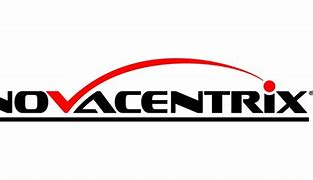We are changing our name from Blue Wolf to QIC Global
We are changing our name from Blue Wolf to QIC Global
Improve your IT service management system standard with ISO 20000-1. Allow QIC Global to support you in reaching certification as we perform third-party audits.





ISO 20000-1 certification standard is the global service management benchmark for the IT industry. Acknowledged across the globe, the standard helps to create a comprehensive quality assurance manual for IT companies to ensure customer satisfaction. It offers a practical set of clauses that act as a guide to meet customer expectations from time to time. This global benchmark focuses on the quality requirements in the information technology sector. As the industry grows internationally and the demand increases every day, rivalry is at its peak too. The most effective way to create a niche or a loyal customer segment is by consistent quality performance. If the demands are not met, sustaining in the competitive market becomes difficult.
ISO 20000-1 offers you the ideal service management framework that helps to optimize the most efficient resources systematically. It guides the management in determining business operations, their performance, and transparent communication. The clauses ensure zero redundancies from the system, too. With the support of ISO 20000-1, companies achieve market exposure as the clauses support quality service and determine compliance. IT service management strongly depends on resource management and optimization. Through ISO 20000-1, companies manage to accomplish business continuity and sustainability.
Being the service management system standard for the IT industry, ISO 20000-1 focuses on quality control. The following business practices are the key concern of the certification benchmark -

ISO/IEC 20000-1:2018 specifies the framework to define how to develop, operate, sustain, and continuously enhance a Service Management System (SMS). Organizations need to establish the scope, policy, and objectives of their SMS, and services need to be customer-focused and aligned with business needs.
Some of the important compliance requirements are:
Organizations tend to experience the same non-conformity in the case of an audit:
The gaps need to be addressed to ensure they are meeting the compliance standards, as well as gaining trust in the minds of the customers through service delivery.



“I want to express my sincere appreciation for your support during our recent ISO audit.”


“One of the best business decisions I think we've made in the entire time we've been here in the company.”


We make auditing your ISO Standards easy. We know audits can be stressful. We’ll take the stress out.


“What seemed like a very intimidating process … was made simple … and [has] elevated our quality and safety program to another level.”


“…our staff feel comfortable talking to [the auditor]… makes you feel like you are working together”


“…Relaxed, didn't feel pressured..."


“I would just say, if you want the best and you want to things done quickly and accurately that I’d go with Blue Wolf. The service was great. Again, just to the point, very speedy, not a lot of fluff around things. We just got to work and got it done and that was the objective.”


“Your approach [to the audit process] is by far superior than any other audit I’ve ever been through. The contrast was night and day”


“There was so much going on at the time of the audit that I just wanted to go back to the audit, it was more relaxing”


“I don’t ever want to experience an audit a different way”


“If everybody could have an audit experience like this, more and more people would actually consider an ISO certification”


“I learned a whole lot from what we just went through with [the auditor] that I didn’t even understand about the standard before”


“Our experience has been that this process in working with the auditors has shown us more ways to improve internally than what we expected”


“What seemed like a very intimidating process … was made simple … and [has] elevated our quality and safety program to another level.”


“…Relaxed, didn't feel pressured..."


“…our staff feel comfortable talking to [the auditor]… makes you feel like you are working together”


“It’s a very smooth and very clear process. Definitely recommended.”


"The auditor was very knowledgeable, very understanding, very helpful."


“Would give them a 10 out of 10 and would highly recommend them to anybody looking to get ISO certification in the future.”


“I found Blue Wolf to be the Cheapest and most experienced in my eyes ‘cause all of the price ranges were higher than Blue Wolf, so I stuck with Blue Wolf. Their quality was very high as well.”


“The service provided by Blue Wolf has been second to none.”


“Blue Wolf streamlined the entire process. They were very easy to communicate with and work with, very cordial, and just an all-around good experience.”


“Blue Wolf makes a great partner for not only getting but maintaining your ISO certifications.”
Quality Management Systems
Environmental Management Systems
Occupational Health and Safety Management Systems
Information Security Management Systems
The Information Technology (IT) Service Management System Standard for earning global recognition!
Global Quality Management Standard for Medical Devices
Energy Management System efficiency
Food Safety Management Systems
Anti-Bribery Management System
Business continuity management system
The Privacy Management Standard for corporate documents
The education management standard for a better learning experience!